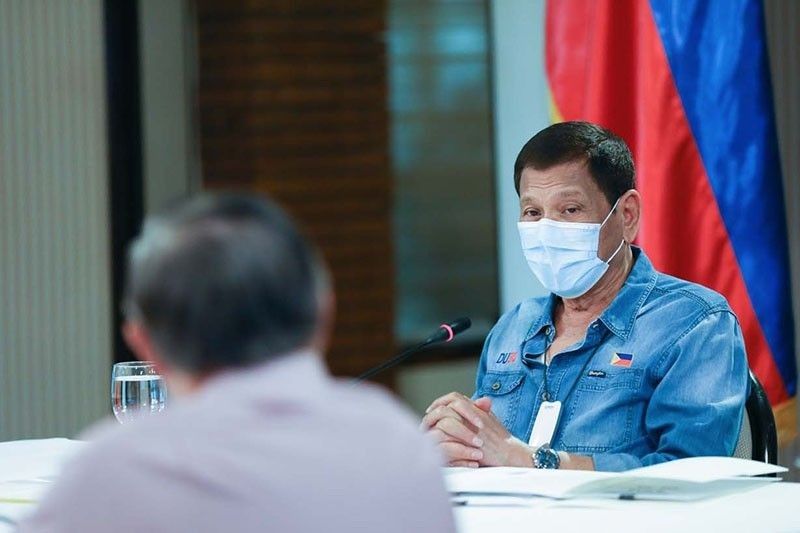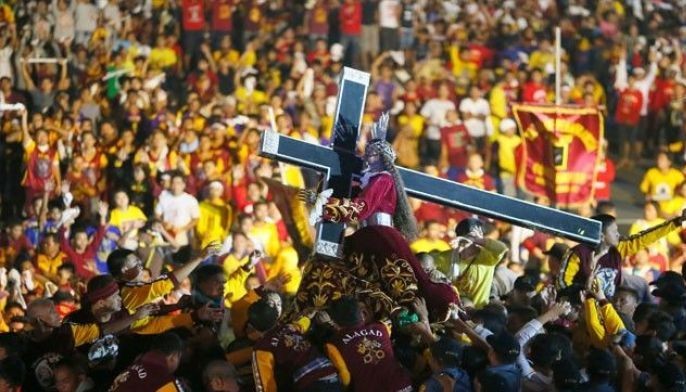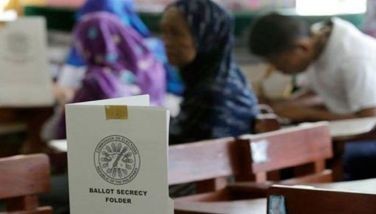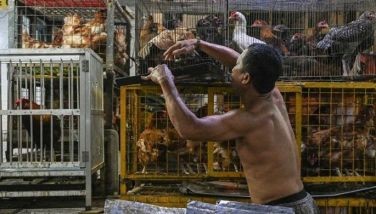Duterte to decide on ECQ today

MANILA, Philippines — President Duterte is expected to decide today on the fate of Metro Manila and other coronavirus high-risk areas still under enhanced community quarantine or ECQ.
The government’s task force on the coronavirus disease 2019 (COVID-19) pandemic is scheduled to meet to discuss whether to retain or relax the restrictions in ECQ areas after May 15.
Metro Manila, home to more than 12 million people and contributor of more than a third of the country’s gross domestic product, has been under ECQ since March 17. The ECQ has been extended twice and is supposed to last until May 15.
Aside from Metro Manila, other areas under ECQ until Friday are Central Luzon except Aurora province, Calabarzon (Cavite, Laguna, Batangas, Rizal, Quezon), Pangasinan, Benguet, Albay, Iloilo including Iloilo City, Cebu including Cebu City, Bacolod City, Zamboanga City and Davao City.
“On Monday, we expect the President’s approval on what will happen to us on May 16,” presidential spokesman Harry Roque said at a televised press briefing over the weekend.
Roque said members of the Inter-Agency Task Force (IATF) on Emerging Infectious Diseases are expected to meet this morning to come up with a final recommendation to Duterte.
“So it’s not true that all places in Metro Manila will shift to GCQ (general community quarantine) and it’s also not true that the entire Metro Manila will remain under ECQ. Let’s wait… we expect the IATF to have a special meeting in the morning,” the Palace spokesman said.
“In the afternoon, they will submit to the President the recommendation on what will happen to the areas that are still under ECQ,” he added.
The government imposed ECQ in some areas to prevent further spread of the coronavirus, which has infected more than 10,000 people in the country.
Under ECQ, only essential businesses and services, including those related to food production and health services, are allowed to operate and public transportation is suspended. In GCQ areas, selected businesses may reopen but they should observe social distancing and health standards like temperature checks and disinfection of facilities. Some forms of public transportation are also allowed to operate but at reduced capacity.
Officials previously said the government is leaning toward relaxing quarantine restrictions in Metro Manila areas that have exhibited a slowdown in the growth of coronavirus cases.
“While there is no final decision yet, I can say that the decision on the areas that will remain under ECQ will be gradual and will also be surgical,” Roque said.
Despite no final word yet, Philippine National Police (PNP) deputy chief for operations Lt. Gen. Gullermo Lorenzo Eleazar said they will strengthen police visibility on the streets once Metro Manila, Central Luzon, Calabarzon and other areas transition to a GCQ from an ECQ.
This includes the deployment of police personnel near commercial establishments and the conduct of mobile checkpoints to inspect private vehicles. The Highway Patrol Group will also be doing random inspections on major roads.
Eleazar suggests that local government units should retain their curfew to deter non-workers from loitering in the evening.
More testing facilities
Also yesterday, Vice President Leni Robredo pushed for the establishment of additional COVID-19 testing facilities in the country.
Robredo said the country’s health system must be prepared should there be a resurgence in COVID cases once the ECQ is lifted.
“The good thing about Singapore and Japan is that their health system is prepared to test many people,” the Vice President said over dzXL.
Robredo has been pushing for mass testing so that health officials can get a clearer picture of the extent of COVID-19 transmission and infection in the country.
She said the country has a testing capacity of 12,000 a day, which is still far from the government’s target of 30,000 tests per day.
Robredo also noted that most of the tests were conducted at the Research Institute for Tropical Medicine and other accredited hospitals.
“If you look at the results, it appears that all of those who tested positive were tested at the hospitals or RITM,” she said.
Robredo said the government should come up with more accessible testing facilities, similar to the drive-through testing stations in South Korea.
The Vice President also called for the resumption of work in the construction industry as well as reopening of services such as clinics and salons.
“Maybe we could do this in phases,” she suggested.
Mass testing
Senate President Vicente Sotto III said yesterday that mass testing coverage nationwide must be widened quickly, and expressed concern that most workers will soon be allowed to go back to their workplaces even as the rate of SARS-CoV-2 infections – which lead to COVID-19 – remains high, especially in Metro Manila, local epicenter of the pandemic.
He cited the case of the Senate, where 20 employees tested positive during a rapid testing conducted on staffers who reported for work when session resumed last May 4.
Sotto warned the Senate experience should serve as an eye opener to government leaders and the general population who have been pushing for the relaxation of quarantine rules even while the threat of infection remains high.
He said while the Department of Health is now conducting mass testing in all provinces, this should be expanded to cover more persons so health officials can get a clearer picture of the extent of COVID-19 transmission and infection.
Resuming public transport
Meanwhile, the Senate committee on public services will start today its hearings on the reopening of the transportation sector.
The committee, chaired by Sen. Grace Poe, will look into the steps to be taken by the government to allow public transportation while also implementing precautions to prevent the spread of the virus.
“A data-driven, evidenced-based, and more lasting institutional post pandemic mobility plan must immediately be crafted in consultation with experts and stakeholders to lay down and converge important insights, concerns and issues as regards the use of mass transportation in the new normal,” Poe said. – Manny Tupas, Helen Flores, Paolo Romero
- Latest
- Trending

































